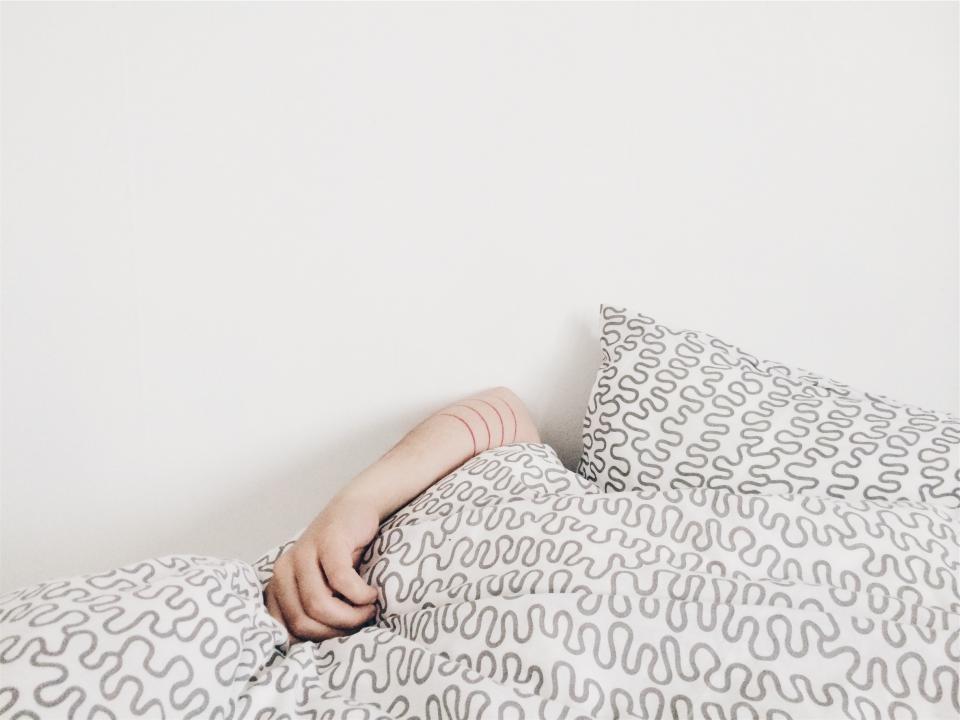Sleep: The Ultimate Smart Food
It’s that time of the school year—midterms. And finals will not be far in the offing. Your school schedule and workload is about to ratchet up to hyper-drive. It is quite understandable many students will spend a more extended amount of time on their studies…or at least they should be. However, there is a study tool few students think about, which may surprise you.
I am referring to sleep. Beyond techniques, beyond habits, and beyond even technology, sleep is one of the most vital tools involved in effective study. Is this guy crazy? What is he telling me? How can I study effectively while sleeping? Well the answer is you can’t study while you sleep, but you must properly sleep so you can study.
I can hear your responses through the pages. I sleep, I sleep a lot, and I even sleep more on the weekends. Yet many studies show the amount of time you spend in slumber does not tell the whole story, and in some cases, you may actually be doing yourself a disservice. It comes down to the old adage: it’s not the quantity of sleep, but the quality of it which makes all the difference. In a recent survey by the Pew Research Center it was found that across several demographical groups, it was found that nearly a quarter (21%) said they had difficulty sleeping.
The Ins and Outs
For our purposes here I will try from the outset to dispense with the scientific jargon you already know. Most people, to function at their highest levels and alertly need an average of 7 ½ to 9 hours sleep. In case you might have heard of this, the University of California at San Francisco did a study and found there is a segment of the population which possesses a gene, which allows them to function at high levels of alertness on only 6 hours sleep. However, this segment of the population is very small at roughly 3% and you likely do not fall into this category.
Most people have a modicum of understanding regarding the different stages of sleep including REM and non-REM stages. I will tell you briefly that stage N3 (deep sleep) and REM (dream sleep) is where the body does its largest amounts of repair work by diverting much of the blood flow from your brain to your muscles.
So now that we got the technical jibber-jabber out of the way, let’s get down to business. How can lack of sleep (sleep deprivation) affect the average college student? First, it is imperative to understand, as you scoop brussel sprouts and seaweed into your gullet, sleep is as vital a portion of your daily diet as anything else you do for your body. In fact, sleep is the ultimate “smart food.”
Sleep Deprivation and its Effects on Students
Sleep deprivation can cause a downturn in creativity and problem solving skills. It can also leave you with an inability to remain focused or alert during lectures. If you’ve ever smashed your hand down on the snooze button of your alarm or cell phone, or have a difficult time getting out of bed, you may be lacking proper sleep. Sleep deprivation can also affect your memory, concentration, or cause indecisiveness and an inability to cope with stressful situations. Of course these are things which are closely associated to learning. Yet there are physical side-effects as well.
Trying to avoid that freshman fifteen? Not only will late night pizza be your downfall, but in accordance with sleep deprivation, this condition has been shown to be associated with weight gain, as well as other health-related factors such as reductions in natural immunity. So there are quite a few ways sleep deprivation can impact your life and your academic career. And if you are experiencing any of these conditions, lack of sleep could be the culprit. So the next step is to figure out what can be done about it.
Here’s Help
Let’s get some logistical stuff out of the way shall we? The only possible way you will even have an opportunity to receive the proper amount of sleep is to budget your time. Avoid leaving large projects or papers for the last minute. Study consistently each night and avoid the all night study binge, which often doesn’t work so well anyway. I know it might seem easier said than done, but this is the first necessary step.
When it comes to sleep, most will recommend a pre-sleep ritual. Light reading is helpful. So drop that Shakespeare (the only time you’ll see me write this) and grab a graphic novel if possible or something which doesn’t require heavy amounts of thinking. Avoid using the television to fall asleep. Light inhibits the brain from producing melatonin, which is a chemical that makes you sleepy. Cell phones and laptops also produce artificial light that in many cases has the same effect.
The Pew Research Center did a survey and found that 90% of people between the ages of 18-29 sleep with their phones nearby. Of course, some may do so because they use their phone as an alarm clock, however this also leaves the possibility of having your sleep disrupted by a text or a phone call. And the alarm feature may not be the only reason their phone is nearby since at least 65% of adults say they often fall asleep with a phone in their bed.
Therefore, not only is the light from these devices keeping you awake, but the possibility of constant disruption is also detrimental to sleep health. If this is a problem for you, stop using your cell phone as an alarm. Go out and by a cheap alarm clock…yes they still make them, and use it instead. And if you find yourself waking up in the middle of the night to talk into your alarm clock, then you definitely have a bigger problem than sleep deprivation.
Hear is a method I like—milk. Yes, momma was right a glass of warm milk will help put you to sleep and there is science to back her up. Milk contains an amino acid called L-tryptophan, which is known to cause drowsiness, like after eating turkey during Thanksgiving. Stay from snacks that contain protein, but edge more towards carbohydrates. Crackers are a nice light alternative.
These brands of pre-sleep rituals normally take about 10 minutes. If you drink wine or alcohol before sleeping stop! This is bad news for sleep. Although alcohol has a sedative effect, once it is metabolized into your body it can cause arousals, which will affect the quality of your sleep. Caffeine has similar attributes. Nicotine from smoking may offer a relaxing sensation, but becomes a stimulant once it is metabolized into your bloodstream, affecting sleep quality.
Yet there can be other factors which come into play. The temperature of a room can affect the way you sleep. Somewhere between 65 and 75 degrees is normally optimal, unless you are a snake or a lizard. Using blinds to block out light is a no-brainer, but hot baths or showers also generally help. Meditation is also very effective for good sleep. Anything which relaxes both the mind and the body will assist in restful sleep.
Avoid working or studying up until the time you go to bed. Studying or thinking about the next day’s events cause psychological stessors that not only affect your ability to fall asleep, but can carry over into effecting your ability for restful sleep. Whatever tactic you choose, try to be consistent with your sleep hours.
Not getting enough sleep causes something called sleep debt…creative huh? But this is a problem, which exist amongst all ages and ethnic groups. This is why you find many college students “sleeping in” on weekends—bad choice. Those extra hours of sleep may give you a temporary boost in energy and productivity, but it also throws off you internal clock, and makes it even more difficult to wake up on Monday morning for class. To rectify sleep debt, short naps can help, however this is not something I would recommend making a habit out of since, this can also make it more difficult to go to bed at the times you should—consistent sleep hours is always the best measure.
I understand this is a lot to drink in. And if you wish to use this article as a sleep aid so be it. Just don’t tell me about it or you’ll hurt my feelings. However from the research I’ve found, it seems sleep health may not be the most important thing on your mind. Why should it be? It only affects your life, health, ability to succeed in school, your chances for graduating, getting a good job, earning money, eating, relationships, one day getting married, having a family, children, teaching those children to sleep properly so they can go to college, graduate…am I going too far? I think you get the point so get proper sleep will ya? Trust me you will be much better off, or don’t, and continue to blame trigonometry and Ralph Waldo Emerson for your troubles.










Leave a Reply
Want to join the discussion?Feel free to contribute!